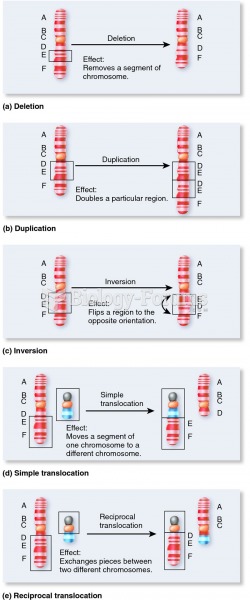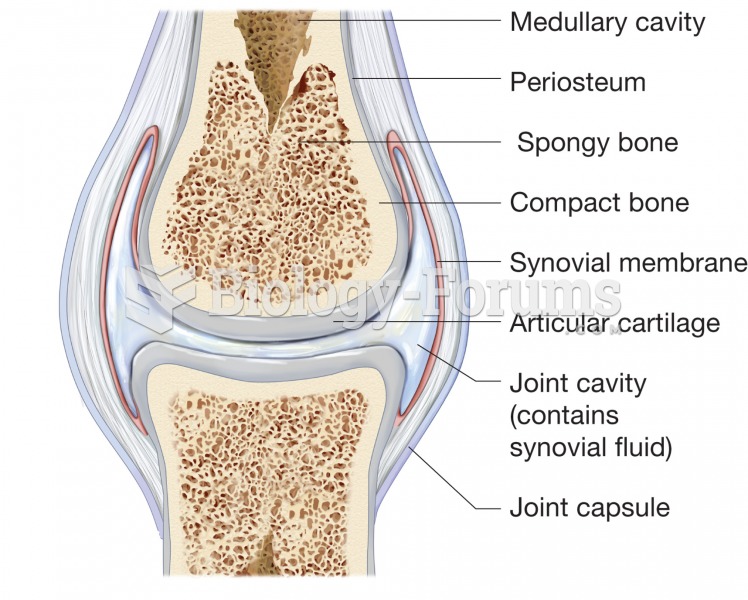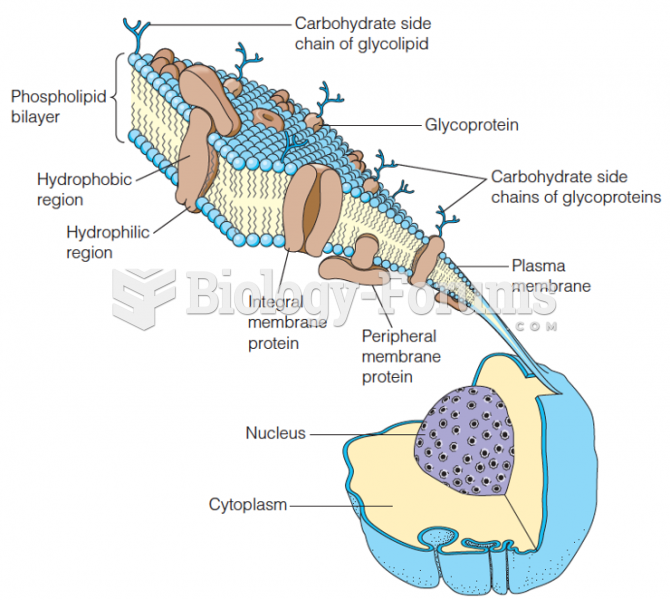|
|
|
More than 34,000 trademarked medication names and more than 10,000 generic medication names are in use in the United States.
The heart is located in the center of the chest, with part of it tipped slightly so that it taps against the left side of the chest.
The senior population grows every year. Seniors older than 65 years of age now comprise more than 13% of the total population. However, women outlive men. In the 85-and-over age group, there are only 45 men to every 100 women.
Cancer has been around as long as humankind, but only in the second half of the twentieth century did the number of cancer cases explode.
Women are two-thirds more likely than men to develop irritable bowel syndrome. This may be attributable to hormonal changes related to their menstrual cycles.







